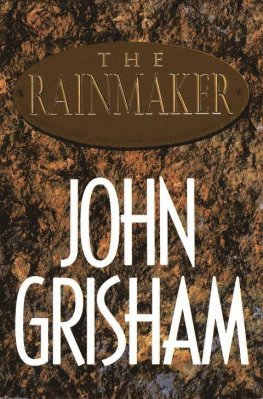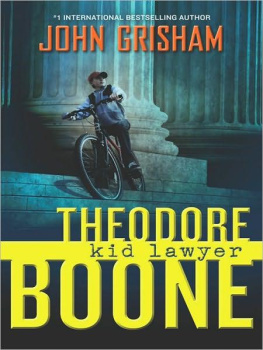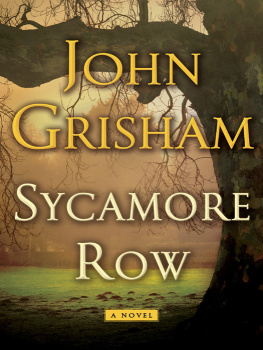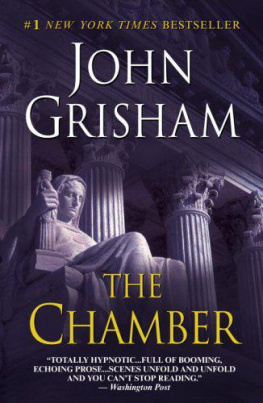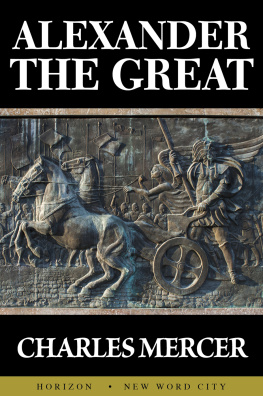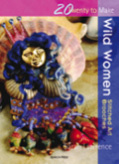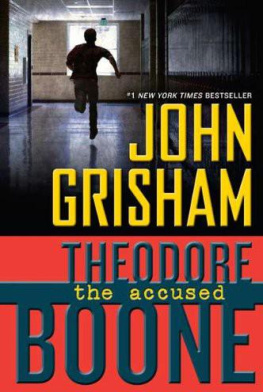John Grisham
Camino Island
To Rene
Thanks for the story
The imposter borrowed the name of Neville Manchin, an actual professor of American literature at Portland State and soon-to-be doctoral student at Stanford. In his letter, on perfectly forged college stationery, Professor Manchin claimed to be a budding scholar of F. Scott Fitzgerald and was keen to see the great writers manuscripts and papers during a forthcoming trip to the East Coast. The letter was addressed to Dr. Jeffrey Brown, Director of Manuscripts Division, Department of Rare Books and Special Collections, Firestone Library, Princeton University. It arrived with a few others, was duly sorted and passed along, and eventually landed on the desk of Ed Folk, a career junior librarian whose task, among several other monotonous ones, was to verify the credentials of the person who wrote the letter.
Ed received several of these letters each week, all in many ways the same, all from self-proclaimed Fitzgerald buffs and experts, and even from the occasional true scholar. In the previous calendar year, Ed had cleared and logged in 190 of these people through the library. They came from all over the world and arrived wide-eyed and humbled, like pilgrims before a shrine. In his thirty-four years at the same desk, Ed had processed all of them. And, they were not going away. F. Scott Fitzgerald continued to fascinate. The traffic was as heavy now as it had been three decades earlier. These days, though, Ed was wondering what could possibly be left of the great writers life that had not been pored over, studied at great length, and written about. Not long ago, a true scholar told Ed that there were now at least a hundred books and over ten thousand published academic articles on Fitzgerald the man, the writer, his works, and his crazy wife.
And he drank himself to death at forty-four! What if hed lived into old age and kept writing? Ed would need an assistant, maybe two, perhaps even an entire staff. But then Ed knew that an early death was often the key to later acclaim (not to mention greater royalties).
After a few days, Ed finally got around to dealing with Professor Manchin. A quick review of the librarys register revealed that this was a new person, a new request. Some of the veterans had been to Princeton so many times they simply called his number and said, Hey, Ed, Ill be there next Tuesday. Which was fine with Ed. Not so with Manchin. Ed went through the Portland State website and found his man. Undergraduate degree in American lit from the University of Oregon; masters from UCLA; adjunct gig now for three years. His photo revealed a rather plain-looking young man of perhaps thirty-five, the makings of a beard that was probably temporary, and narrow frameless eyeglasses.
In his letter, Professor Manchin asked whoever responded to do so by e-mail, and gave a private Gmail address. He said he rarely checked his university address. Ed thought, Thats because youre just a lowly adjunct professor and probably dont even have a real office. He often had these thoughts, but, of course, was too professional to utter them to anyone else. Out of caution, the next day he sent a response through the Portland State server. He thanked Professor Manchin for his letter and invited him to the Princeton campus. He asked for a general idea of when he might arrive and laid out a few of the basic rules regarding the Fitzgerald collection. There were many, and he suggested that Professor Manchin study them on the librarys website.
The reply was automatic and informed Ed that Manchin was out of pocket for a few days. One of Manchins partners had hacked into the Portland State directory just deep enough to tamper with the English departments e-mail server; easy work for a sophisticated hacker. He and the imposter knew immediately that Ed had responded.
Ho hum, thought Ed. The next day he sent the same message to Professor Manchins private Gmail address. Within an hour, Manchin replied with an enthusiastic thank-you, said he couldnt wait to get there, and so on. He gushed on about how he had studied the librarys website, had spent hours with the Fitzgerald digital archives, had owned for years the multivolume series containing facsimile editions of the great authors handwritten first drafts, and had a particular interest in the critical reviews of the first novel, This Side of Paradise.
Great, said Ed. Hed seen it all before. The guy was trying to impress him before he even got there, which was not at all unusual.
F. Scott Fitzgerald enrolled in Princeton in the fall of 1913. At the age of sixteen, he was dreaming of writing the great American novel, and had indeed begun working on an early version of This Side of Paradise. He dropped out four years later to join the Army and go to war, but it ended before he was deployed. His classic, The Great Gatsby, was published in 1925 but did not become popular until after his death. He struggled financially throughout his career, and by 1940 was working in Hollywood, cranking out bad screenplays, failing physically and creatively. On December 21, he died of a heart attack, brought on by years of severe alcoholism.
In 1950, Scottie, his daughter and only child, gave his original manuscripts, notes, and letters his papers to the Firestone Library at Princeton. His five novels were handwritten on inexpensive paper that did not age well. The library quickly realized that it would be unwise to allow researchers to physically handle them. High-quality copies were made, and the originals were locked away in a secured basement vault where the air, light, and temperature were carefully controlled. Over the years, they had been removed only a handful of times.
The man posing as Professor Neville Manchin arrived at Princeton on a beautiful fall day in early October. He was directed to Rare Books and Special Collections, where he met Ed Folk, who then passed him along to another assistant librarian who examined and copied his Oregon drivers license. It was, of course, a forgery, but a perfect one. The forger, who was also the hacker, had been trained by the CIA and had a long history in the murky world of private espionage. Breaching a bit of campus security was hardly a challenge.
Professor Manchin was then photographed and given a security badge that had to be displayed at all times. He followed the assistant librarian to the second floor, to a large room with two long tables and walls lined with retractable steel drawers, each of which was locked. Manchin noticed at least four surveillance cameras high in the corners, cameras that were supposed to be seen. He suspected others were well hidden. He attempted to chat up the assistant librarian but got little in return. He jokingly asked if he could see the original manuscript for This Side of Paradise. The assistant librarian offered a smug grin and said that would not be possible.
Have you ever seen the originals? Manchin asked.
Only once.
A pause as Manchin waited for more, then he asked, And what was the occasion?
Well, a certain famous scholar wished to see them. We accompanied him down to the vault and gave him a look. He didnt touch the papers, though. Only our head librarian is allowed to do so, and only with special gloves.
Of course. Oh well, lets get to work.
The assistant opened two of the large drawers, both labeled This Side of Paradise, and withdrew thick, oversized notebooks. He said, These contain the reviews of the book when it was first published. We have many other samples of later reviews.
Perfect, Manchin said with a grin. He opened his briefcase, took out a notepad, and seemed ready to pounce on everything laid on the table. Half an hour later, with Manchin deep in his work, the assistant librarian excused himself and disappeared. For the benefit of the cameras, Manchin never looked up. Eventually, he needed to find the mens room and wandered away. He took a wrong turn here and another one there, got himself lost, and eased through Collections, avoiding contact with anyone. There were surveillance cameras everywhere. He doubted that anyone at that moment was watching the footage, but it could certainly be retrieved if needed. He found an elevator, avoided it, and took the nearby stairs. The first level below was similar to the ground floor. Below it, the stairs stopped at B2 (Basement 2), where a large thick door waited with Emergencies Only painted in bold letters. A keypad was next to the door, and another sign warned that an alarm would sound the instant the door was opened without proper authorization. Two security cameras watched the door and the area around it.


